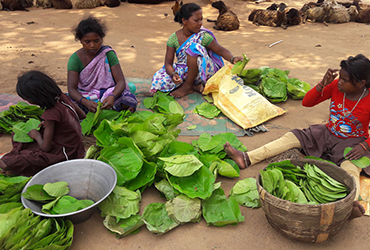A small group of 10-12 women from a rural community formed a non-formal producer group to harness the rich natural resources of their surroundings. These women, drawing on traditional knowledge, collect leaves from the forest, which they craft into plates. This activity not only preserves their cultural heritage but also provides them with a means of livelihood in an environment where economic opportunities are limited.
Recognizing the potential of this initiative, Gram Sathi, a committed organization focused on empowering rural communities, stepped in to support these women. Gram Sathi provided them with a much-needed market platform, allowing them to sell their leaf plates directly to consumers. This intervention was crucial, as it enabled the women to reach a broader market, ensuring a fair price for their products and helping them avoid exploitative middlemen.
Through this collaboration, the women have been able to achieve financial stability and independence, improving their quality of life and contributing to their families' welfare. The initiative has also had a broader impact on the community by encouraging the sustainable use of forest resources and promoting environmental conservation. The success of this producer group highlights the importance of empowering women in rural areas and the role of organizations like Gram Sathi in fostering economic development and social change.


